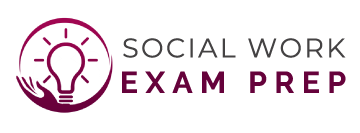
Social Workers: Navigating Organizational Conflict in Community-Based Agencies
Community-based agencies are vital in providing essential services and support to diverse populations, including individuals with unique needs such as autism. However, these agencies can experience conflicts that hinder their ability to serve effectively. Understanding the types of organizational conflict, their causes, and strategies for resolution is crucial for maintaining a positive impact on the community.
Types and Causes of Organizational Conflict
Interpersonal and Intra-Organizational Conflict:
Conflicts between staff members or within departments often arise due to resource allocation, differing priorities, and management styles. These internal disputes can disrupt team cohesion, decrease productivity, and impact the overall effectiveness of the agency. Addressing these conflicts involves fostering open communication, implementing clear protocols, and ensuring equitable resource distribution.
Inter-Organizational Conflict:
Conflicts between different agencies or organizations can stem from competition for resources, differing priorities, or collaboration challenges. Building strong partnerships and engaging in open dialogue are essential for resolving these external conflicts and finding common goals that benefit all parties.
Common Causes of Conflict:
Several factors contribute to conflicts in community-based agencies:
- Resource Allocation: Limited funding can lead to competition and tension. Transparent budgeting processes and equitable resource distribution can alleviate these issues.
- Communication Breakdown: Poor communication channels and a lack of transparency can cause misunderstandings. Ensuring clear and open communication is crucial.
- Leadership and Management Issues: Conflicts arising from differing leadership styles, power struggles, and unclear roles can be addressed through leadership training and collaborative management practices.
- Cultural and Value Differences: Diversity in values and cultural backgrounds can lead to tensions. Cultural competency training and promoting inclusivity help bridge these gaps.
- Change and Resistance: Resistance to change can create friction. Implementing structured change management processes and involving staff in decision-making can ease transitions.
Impact of Organizational Conflict
On Staff and Volunteers:
Conflict can increase stress, lower morale, cause burnout, and advance turnover rates. Promptly addressing conflicts and supporting staff well-being is essential for maintaining a motivated and committed team.
On Service Delivery and Community Trust:
Disruptions in services and decreased effectiveness in meeting community needs often result from unresolved conflicts. This can erode trust and confidence in the agency, negatively impacting its reputation. Building and maintaining trust requires transparency, accountability, and a commitment to resolving issues constructively.
Strategies for Conflict Resolution
Effective Communication and Mediation:
Promoting open and transparent communication, active listening, and empathy are key to resolving conflicts. Utilizing neutral third parties for mediation and facilitating discussions can help find common ground and resolve disputes amicably.
Leadership Training and Team Building:
Providing training on conflict resolution and inclusive leadership empowers leaders to manage conflicts effectively. Team-building activities and promoting a supportive culture strengthen relationships and improve team dynamics.
Clear Policies and Cultural Competency Training:
Establishing clear conflict resolution policies and ensuring all staff are aware of these guidelines helps in managing conflicts systematically. Training on cultural awareness and sensitivity promotes an inclusive environment and addresses conflicts arising from cultural differences.
Change Management:
Implementing structured change management processes and involving staff in change initiatives can ease transitions and reduce resistance.
Kickstart Your Meaningful Career with the Right Preparation
If you’re an aspiring social worker, are you ready to excel on the Social Work Exam? Our course provides the in-depth knowledge and strategic tools you need to succeed. Gain a profound understanding of key concepts like conflict resolution, master exam-style questions, and boost your confidence. Equip yourself for a fulfilling career in social work. Enroll today and unlock your full potential. https://socialworkexamprep.net/course/social-work-exam-prep/
